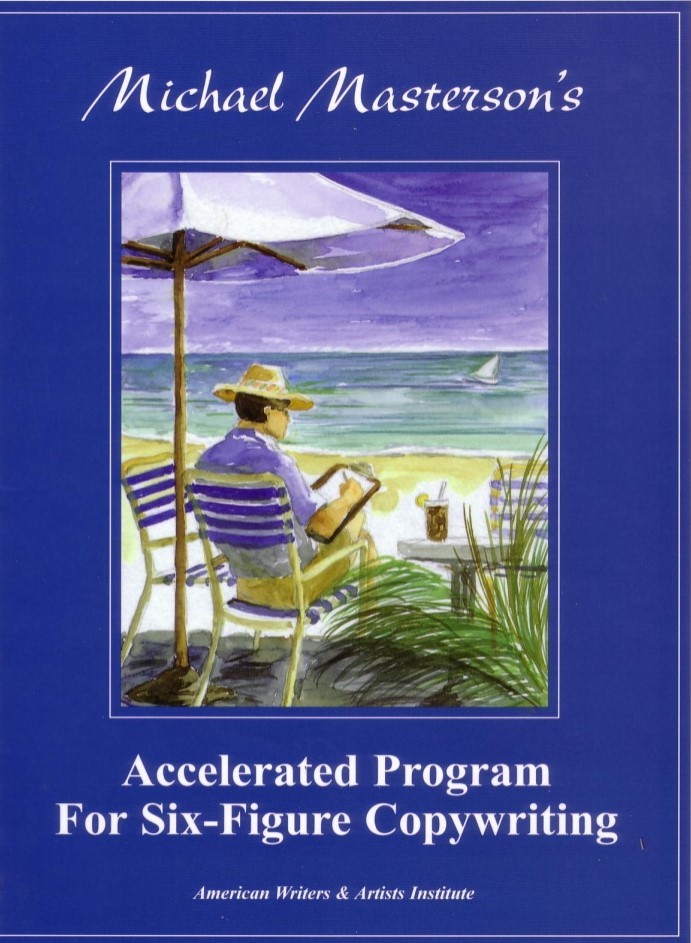Save Time: Get 5 Simple Writing Tips
you can put to use in 10 minutes
The 2 Main Ways to Build Your Freelance Writing Business
Award-winning writer Kathy Widenhouse has helped hundreds of nonprofits and writers produce successful content , with 750K+ views for her writing tutorials. She is the author of 9 books. See more of Kathy’s content here.
Updated 7.22.25
I was well into adulthood — and enjoying a career as an employed classical musician — when I learned that people make a living at freelance writing.
I didn’t know such a thing was possible. Everybody writes, I reasoned — whether it’s a social media post showing off the keys to your new home or a thank you note to Grandma.
But people who made a living from their words? They either (A) worked as journalists or (B) had somehow landed a publishing contract to write The Great American Novel.
Yet I learned that the average person (like me) can build a solid freelance writing business. I know because I’ve done it. When my 20 years as a military musician were up, I became a full-time freelance writer.
If I can do it, then others can too. That means you.
A freelance writing business overview
However, my journey to building a freelance writing business was piecemeal. At the start, freelance writing simply intrigued me. I’d moonlighted playing extra musical gigs in addition to my salaried performing job, but those were by referral. I didn’t know that a writer could reach out to a large pool of potential clients to get work. I couldn’t see the big picture and didn’t know how many options were available to me.
Instead, I discovered one opportunity at a time. First, it was writing and pitching magazine articles. I collected a few clips.
Then, I learned the basics of copywriting. I found out that businesses need writers to help them produce content. After that, I took a course on marketing my services to get content-writing clients. A couple of years later, I found out that freelance writers build their business by writing books … creating niche websites, courses, printables … becoming affiliates … and so on.
To be fair, freelancing has changed much since I hopped on board. The internet has opened up oodles of new opportunities if you want to build a freelance writing business.
Yet getting started can be confusing. With all the choices, where should you begin? Here’s a simple explanation of the two key ways you can make a living as a freelance writer.
Two ways to make money in a freelance writing business
You’ve set up your freelance writing business — and now you want to grow.
And by “set up,” I mean you’ve chosen a niche or two to focus on. You’ve got some writing samples and have posted them online. Maybe you’ve got one or two assignments in the pipeline. On the other hand, you’re nowhere near the place where you can quit your day job.
There are dozens of ways you can earn money from writing. But when you stand back and look at the options, you discover you can put those streams of income into two big buckets. You can …
- Sell your writing
- Sell your services as a writer
Use this content strategy guide to write and sell your own content.
1. Sell your writing
I get plenty of questions from readers about how they can sell their writing. In other words, they’ve created a blog post or a book or a devotional and want a publisher to pay them for the manuscript and take care of the layout, printing, and marketing.
Well, that’s ideal. But you don’t need to wait for Ms. Magic Publisher to fall from the Writing Sky into your lap. You can sell your writing yourself. Building income from your own words can take time, but there are plenty of avenues you can take to get the world to pay you for your content.
You can pitch your content
Study the markets and write content that those publishers need — but that also scratches your itch. Let’s say you’re passionate about fly fishing. You scan Writer’s Market and find publications that publish content about fly fishing. Then you create articles and blog posts for fly fishing anglers and pitch them to those outlets — and get paid.
Ditto for books. Send queries to appropriate agents and publishers. Include your book idea — and persist. Jack Canfield’s Chicken Soup for the Soul was rejected 144 times before it found a publisher. Today, it’s a full-blown franchise.
You can create your own publication
Build a website or blog, fill it with helpful, optimized content, cultivate readers, and earn advertising and affiliate fees. Or start a Medium page, join the Partner Program, build a following, and reap monthly benefits. When you become a publisher, you can sell your writing. And others will come calling. They will ask you to publish theirs, too.
You can become a marketer
Self-publish your book. Skip the middleman promoters and sell it to readers yourself. After Laura Self’s 8-year-old daughter was diagnosed with Type 1 diabetes, she envisioned educating other children and families about the disorder. The result is her book, Sweetie. It took a year of social media posts and podcasts and appearances, but now the book makes money. Laura donates the proceeds to diabetes research.
You can build a platform
Maybe you’re a respected professional in your field with a speaking schedule or you’ve already published a bestseller. In either instance, you have a ready-made platform for the people who are eager for your next piece of content.
But if you don’t yet have notoriety, then you can build it — in your niche. Find the people who are interested in your subject matter. Take our fly-fishing example. You’ve become adept at building fly rods and other anglers are interested in doing the same. Position yourself as a leading DIY fly rod builder, and you can build a platform — an audience of aficionados who are so hungry for your advice and information that they pay you for it.
Learn the skill the clients desperately want: copywriting
2. Sell your services as a writer
If you simply want to make money from the act of writing, you can sell your services as a content writer. And you needn’t sell your soul to do it. You can choose a couple of niches that are close to your heart, assemble your writing clips, and work pitching clients in that niche. You won’t get a byline. And you won’t own the content you create because it’s “for hire.” But you will have a healthy bank account.
Why would someone hire you? Because they need you. You have a few things they want. First of all …
You have skills
Clients need your skills
Even if business owners have writing skills, they are often too busy to use them. What do they need? A freelance writer! They can’t always take the time to create content that drives their business. But you can, because …
- You know about a particular niche. Businesses appreciate the ability to find writers with specific knowledge and expertise relevant to their industry. Remember our fly-fishing example? Businesses that specialize in outdoor sports or angling are more eager to hire a freelance writer who has experience writing about jig hooks and casting techniques — with the clips to prove it — than a writer who specializes in emerging market stocks.
- You offer flexibility. Unlike traditional full-time employees, freelance writers offer businesses the flexibility to scale their content production according to their needs. You can get hired for a one-off project or as a provider for a year-long content strategy. A client can hire you for specific tasks without the commitment of a long-term contract, whether it’s one fly-fishing article or a fly-fishing blog post every month for a year.
- You are cost-effective. Rather than bearing the financial burden of salaries, benefits, and office space associated with hiring full-time writers, a client can outsource his writing to freelancers on a project-by-project basis. That eliminates the need to include you on their full-time payroll and provide you with benefits. A small fishing business with a limited budget might enlist the services of a freelance writer to revamp its website content rather than hiring an in-house copywriter.
- You provide creativity. Freelance writers bring a fresh perspective to content. Since you’re not hashing out the day-to-day minutiae of running a client’s business, you offer new ideas.
- You offer time savings. Outsourcing allows a client to focus on his core activities. Instead of spending hours brainstorming ideas and drafting content in-house, the owner can delegate these tasks to skilled writers who can deliver high-quality work on time. For instance, an e-commerce outdoor sports company preparing for the holiday season might hire you to write an email series offering discounts on fly fishing gear.
Choose how you want to build your freelance writing business
At its heart, the question isn’t whether or not you can make money from writing. The question is how you choose to do so. And your decision needn’t be either/or.
To build a healthy freelance writing business, you can sell your writing. Or you can sell your services.
Or you can do both.
More Freelance Writing Tips
Making a Pitch: My Top Tip for Freelance Content Writers ...
Find Freelance Writing Jobs With This Offbeat Strategy ...
Two Types of Readers That Pay You To Write ...
Do You Need a Writer Website (or an Upgrade)? Take the Quiz ...
The 2 Biggest Lies about Freelance Writing Jobs ...
Create a Strategic Plan with this Step-By-Step Guide ...
7 Streams of Income for Writers ...
3 Types of Freelance Writers: Which Are You?
Turn One Freelance Writing Job into an Anchor Client ...
Use a Lead Magnet to Get Content Writing Leads and Prospects ...
Don’t Market Your Writing. Do This Instead...
Make Sense of Marketing: The 4 Ps of Marketing for Writers ...
Kinds of freelance writing projects you can be paid to write ...
Selling Your Services: 6 Writing Tips for Starting Out as a Freelancer ...
More tips for freelance writers on our Pinterest board ...
As an Amazon Associate I earn from qualifying purchases.
Share This Page

Named to 2022 Writer's Digest list
BEST GENRE/NICHE WRITING WEBSITE


Stop Wasting Time!
Grab your exclusive FREE guide, "5 Simple Writing Tips You Can Put to Use in 10 Minutes or Less"














